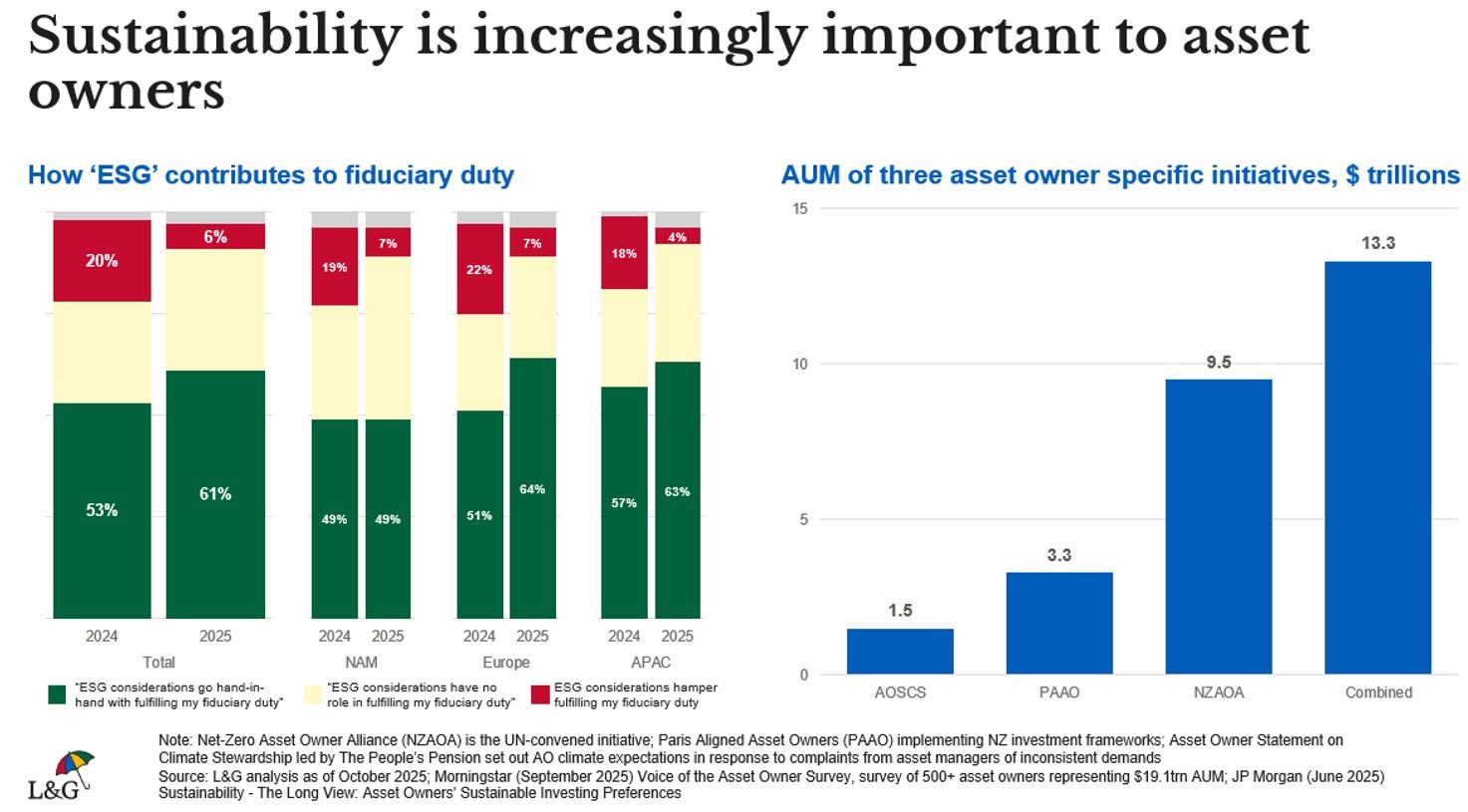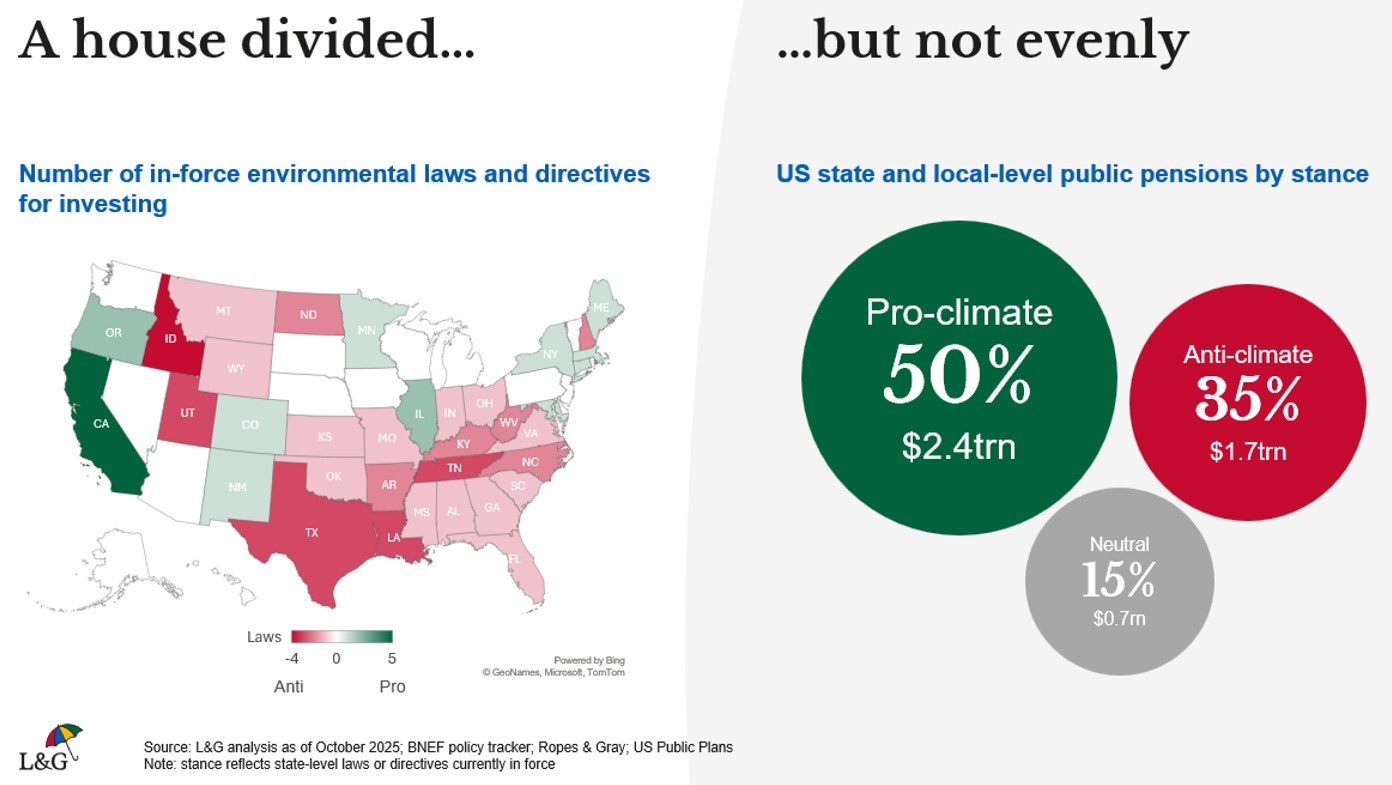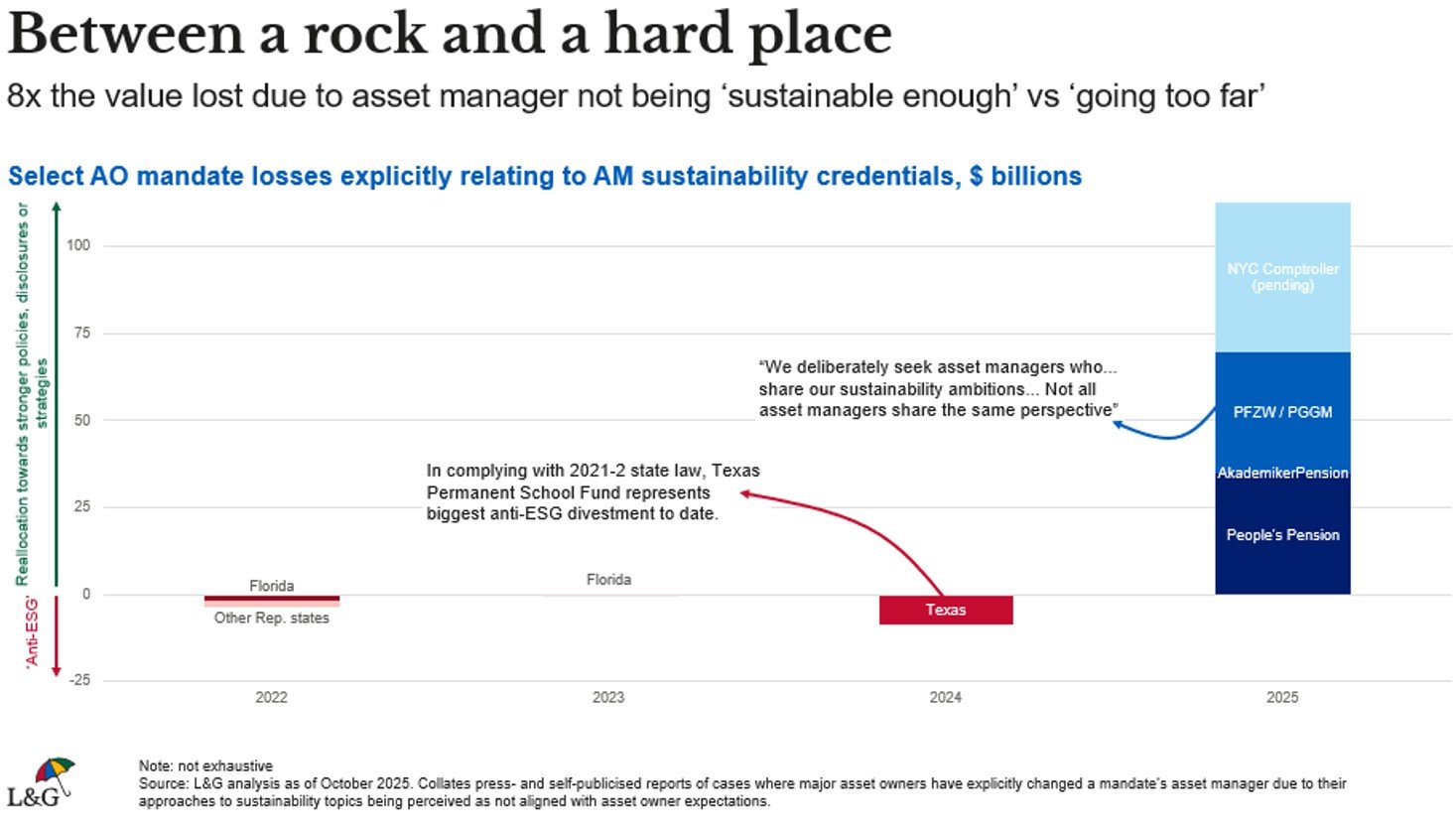Disclaimer: Views in this blog do not promote, and are not directly connected to any L&G product or service. Views are from a range of L&G investment professionals, may be specific to an author’s particular investment region or desk, and do not necessarily reflect the views of L&G. For investment professionals only.
Beyond the backlash
Despite the noise, many asset owners are doubling down on sustainability. Companies and investors should get ready for increased momentum, not less.

The last few years have offered a steady stream of challenging headlines for sustainability professionals, not least in the financial sector. The Trump administration has refocused on energy dominance and withdrawn from climate diplomacy. In early October, the Net Zero Banking Alliance became the latest GFANZ-aligned coalition to shut down after high-profile member exits.
But look a little deeper and a different narrative is emerging. Asset owners – public pensions and sovereign wealth funds who tend to think far longer term than the typical quarterly view – are ramping up pressure to stay on track for their climate ambitions. 61% of asset owners believe sustainability goes hand in hand with their fiduciary duty (up 8ppts from last year); about the same believe materiality of such topics has increased in the last 5 years.[1] Many see themselves as “universal owners”: investors whose portfolios are so large and diversified that their fortunes are tied to the long-term health of the entire economy. For them, sustainability is often a necessity.

A backlash to the backlash? Mandates on the move
The anti-ESG backlash in the US especially has been a dominant theme, with political rhetoric, divestments and a chilling effect on corporate action. Since 2021, nearly 500 anti-ESG bills have been proposed across US state legislatures – though only around 10% have actually passed.[2]

Yet even in the US, the picture is more nuanced. Around 50% of public pension assets – some $2.4 trillion – are in states that remain pro-climate, actively supporting climate-aligned investment strategies. Only about a third of assets are in states with anti-climate policies. Even there, implementation can be patchy and costly. Texas’s bank boycott laws, for example, are estimated to have cost ~$670 million in lost economic activity in 2022-23 due to tightening the municipal bond market.
Globally, the trend is even clearer. North America represents just a third of the top 100 asset owners’ AUM.[3] Asset owners are taking increasingly active steps to use their position to reduce climate risk and capitalise on transition opportunities, fighting back against the initial anti-ESG wave. For example, Japan’s GPIF, the world’s largest public pension fund adopted its first sustainable investment policy in March, saying it “is essential” to consider the effect of sustainability issues on capital markets and companies with positive environmental and social impact “may be a source of sustainable growth”.
Asset owners are also reallocating mandates to managers who take sustainability seriously. An estimated $7.3 – 11.7 trillion of externally managed funds are covered by sustainable investing policies.[4] The People’s Pension recently led a $1.5 trillion coalition to publish an Asset Owner Statement on Climate Stewardship, warning that poor stewardship could lead to mandate reassessment.[5] This signals a clear expectation for asset managers and portfolio companies to align with asset owners’ sustainability objectives. In fact, more than eight times the mandates have been lost by asset managers for not being ‘sustainable enough’ compared to ‘going too far’ since 2022.

Time to step up
The demand for sustainability, at least from this key source of capital, is not going away – in fact, it’s getting stronger. For asset managers, trillions of dollars are potentially in play for those who can support asset owners’ sustainability ambitions. For companies, this is a moment to stay focused on decarbonisation efforts. Those who continue to engage proactively will likely be best placed to navigate an evolving landscape.
Whilst L&G has integrated Environmental, Social, and Governance (ESG) considerations into its investment decision-making and stewardship practices, this does not guarantee the achievement of responsible investing goals within funds that do not include specific ESG goals within their objectives.
[3] Thinking Ahead Institute (November 2024) The Asset Owner 100
[4] JP Morgan Europe Equity Research (June 2025) Sustainability - The Long View: Asset Owners' Sustainable Investing Preferences
[5] https://www.ft.com/content/541c715b-d518-49c3-9838-1cf8d3fb73e5
Recommended content for you
Learn more about our business
We are one of the world's largest asset managers, with capabilities across asset classes to meet our clients' objectives and a longstanding commitment to responsible investing.

